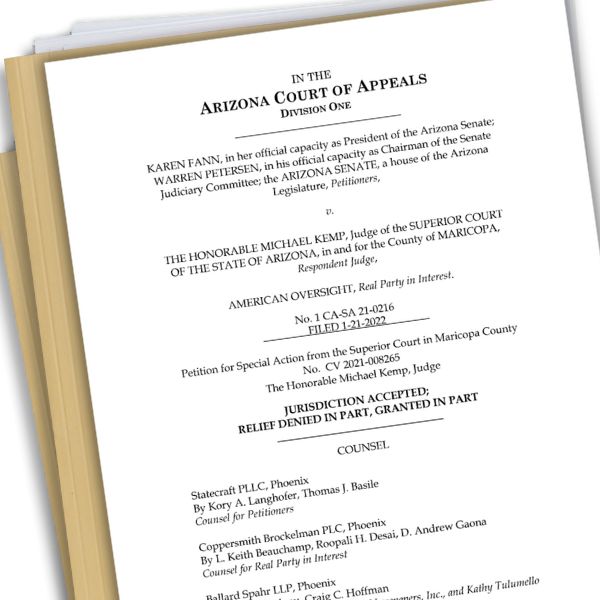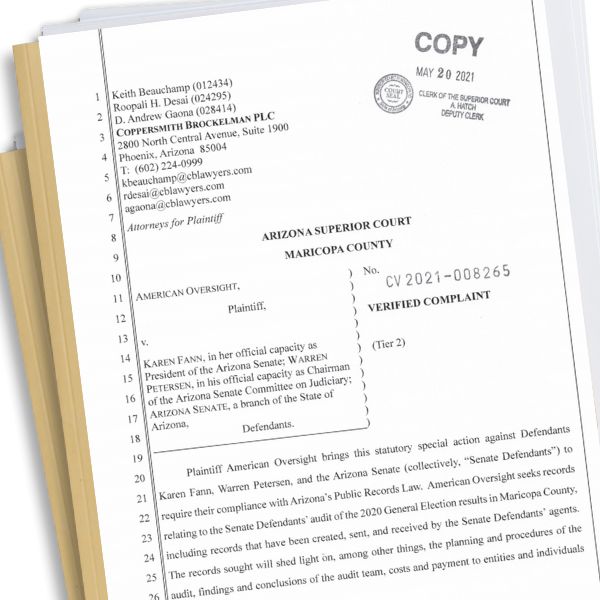
Arizona Appeals Court Denies State Senate’s Attempt to Shield Cyber Ninjas ‘Audit’ Records from Public
The ruling upholds the Superior Court’s order to produce records by Aug. 31, and comes as the “audit” team prepares its draft report to submit to the Senate.

On Thursday, the Arizona Court of Appeals upheld a state judge’s determination that records in the physical custody of Cyber Ninjas — the lead contractor in the state Senate’s sham election “audit” — are “public records that must be disclosed.”
Earlier this week, Maricopa County Superior Court Judge Michael Kemp again ordered the Arizona Senate to release records in its physical possession related to the partisan election review by Aug. 31. The Court of Appeals had issued a temporary stay on the Senate’s obligation to release records held by its contractors, but in Thursday’s decision held that, because the Senate “outsourced its important legislative function to Cyber Ninjas,” those documents “are no less public records simply because they are in the possession of a third party.”
In addition to arguing that it does not have custody of Cyber Ninjas’ records, the Senate had also introduced a new argument when it turned to the Court of Appeals, saying more broadly that, as a body of legislators, it is immune from such lawsuits. But the appeals court found that “[a]llowing the legislature to disregard the clear mandate of the [Arizona Public Records Law] would undermine the integrity of the legislative process and discourage transparency.”
The ruling upholds the Superior Court’s order, and comes as the “audit” team this week prepares its draft report to submit to the Senate. The appeals court’s decision is an important check on the Senate’s months-long effort to block transparency and conceal basic information about the operation’s funding, procedures, and purpose.
“The Senate has taken radical positions to obstruct basic public access to information about its so-called audit,” said Austin Evers, executive director of American Oversight. “It has tried to get away with outsourcing the audit to a third party and argued that the public has no right to enforce transparency laws against them. Their arguments reflect a disdain for accountability, but fortunately the law is not on their side. We are gratified by the Court of Appeals’ decision and look forward to fulfilling the public’s right to transparency.”



